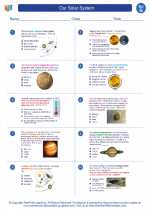Thyroid-Stimulating Hormone (TSH)
Thyroid-stimulating hormone (TSH) is a hormone produced by the pituitary gland, which is located at the base of the brain. TSH plays a crucial role in the regulation of the thyroid gland, which is located in the neck and controls metabolism throughout the body. TSH stimulates the thyroid gland to produce and release the hormones thyroxine (T4) and triiodothyronine (T3), which are essential for regulating metabolism, growth, and energy levels in the body. TSH is also involved in the growth and development of the thyroid gland itself.
Functions of TSH:
- Stimulates the thyroid gland to produce and release T3 and T4 hormones
- Regulates metabolism and energy levels in the body
- Plays a role in the growth and development of the thyroid gland
Regulation of TSH:
TSH production and release are regulated by a feedback mechanism involving the hypothalamus and the thyroid gland. When the levels of T3 and T4 in the blood are low, the hypothalamus releases thyrotropin-releasing hormone (TRH), which stimulates the pituitary gland to release TSH. TSH then acts on the thyroid gland to increase the production of T3 and T4. Once the levels of T3 and T4 in the blood reach a certain threshold, they inhibit the release of TRH and TSH, thereby maintaining a balance in the body's metabolism.
Disorders Related to TSH:
Imbalances in TSH levels can lead to various disorders, including hypothyroidism (low TSH levels) and hyperthyroidism (high TSH levels). Hypothyroidism can cause symptoms such as fatigue, weight gain, and cold intolerance, while hyperthyroidism can lead to symptoms like weight loss, increased heart rate, and heat intolerance.
Study Guide:
Here are some key points to remember about thyroid-stimulating hormone (TSH):
- TSH is produced by the pituitary gland and regulates the function of the thyroid gland.
- It stimulates the production and release of T3 and T4 hormones, which are essential for metabolism and energy regulation.
- TSH levels are regulated by a feedback mechanism involving the hypothalamus, pituitary gland, and thyroid gland.
- Imbalances in TSH levels can lead to hypothyroidism or hyperthyroidism, which have distinct symptoms and require medical attention.
◂Science Worksheets and Study Guides Seventh Grade. Our Solar System

 Activity Lesson
Activity Lesson
 Activity Lesson
Activity Lesson
 Worksheet/Answer key
Worksheet/Answer key
 Worksheet/Answer key
Worksheet/Answer key
 Worksheet/Answer key
Worksheet/Answer key
 Worksheet/Answer key
Worksheet/Answer key
 Vocabulary/Answer key
Vocabulary/Answer key
 Vocabulary/Answer key
Vocabulary/Answer key
 Vocabulary/Answer key
Vocabulary/Answer key
